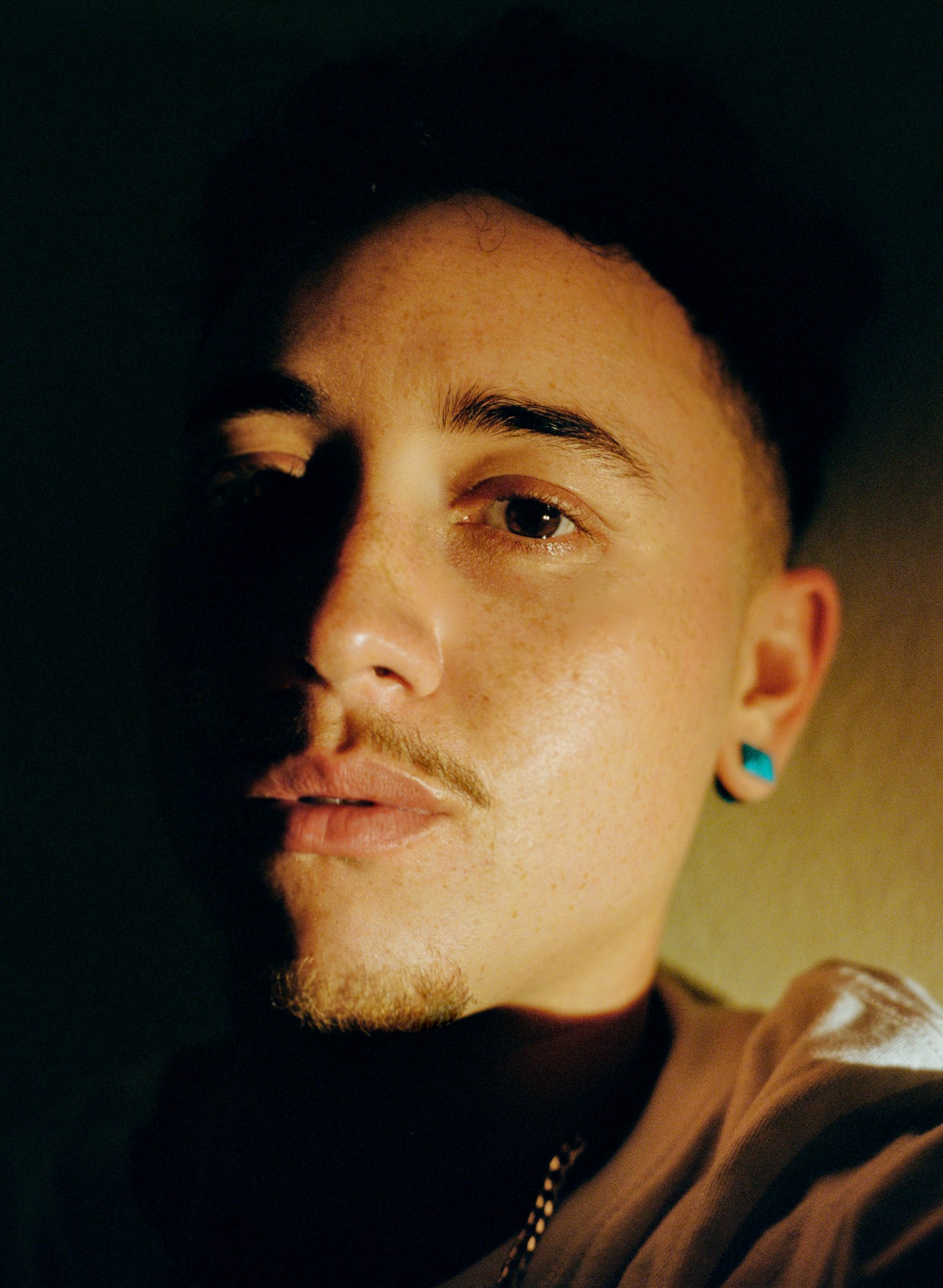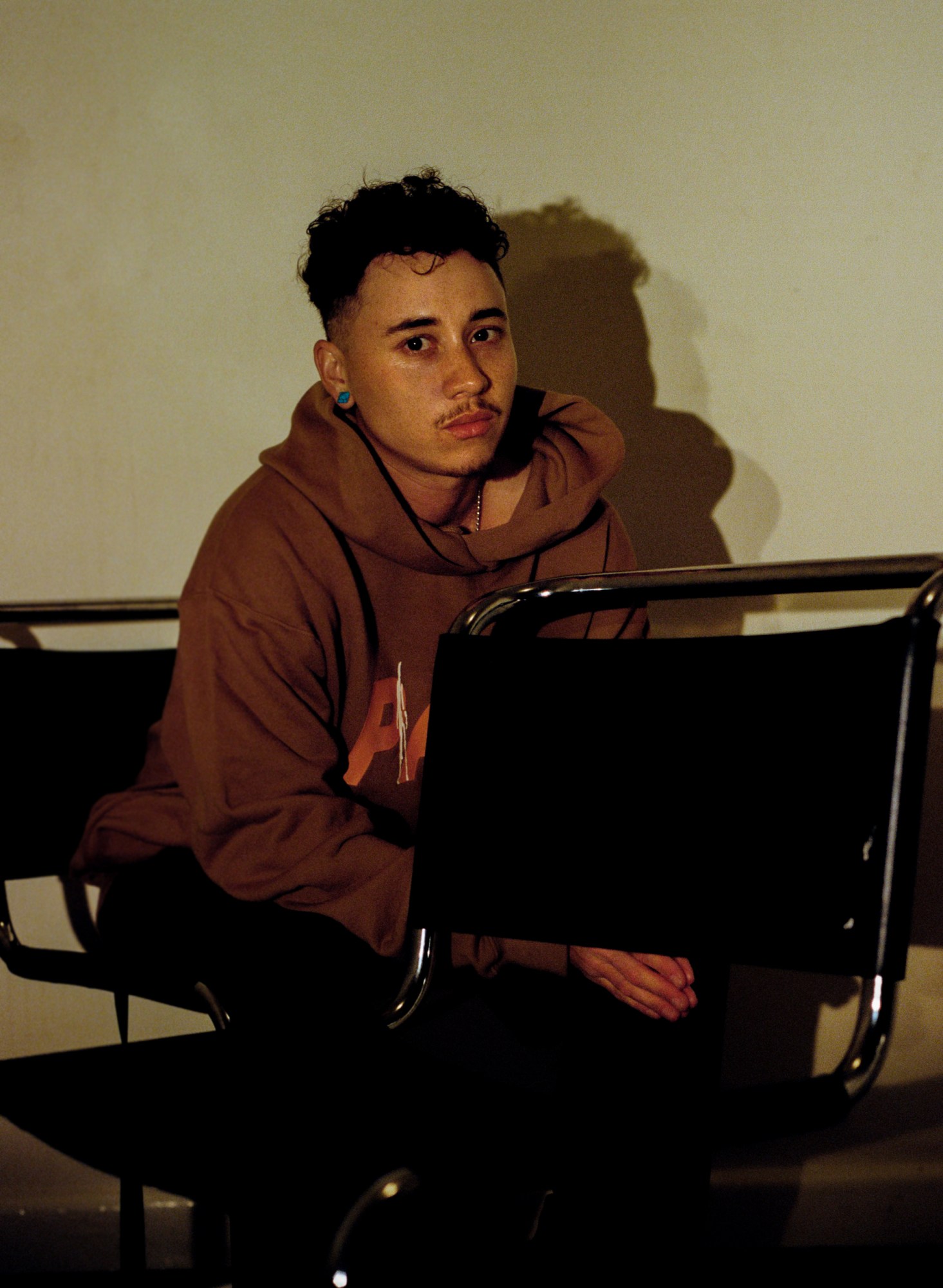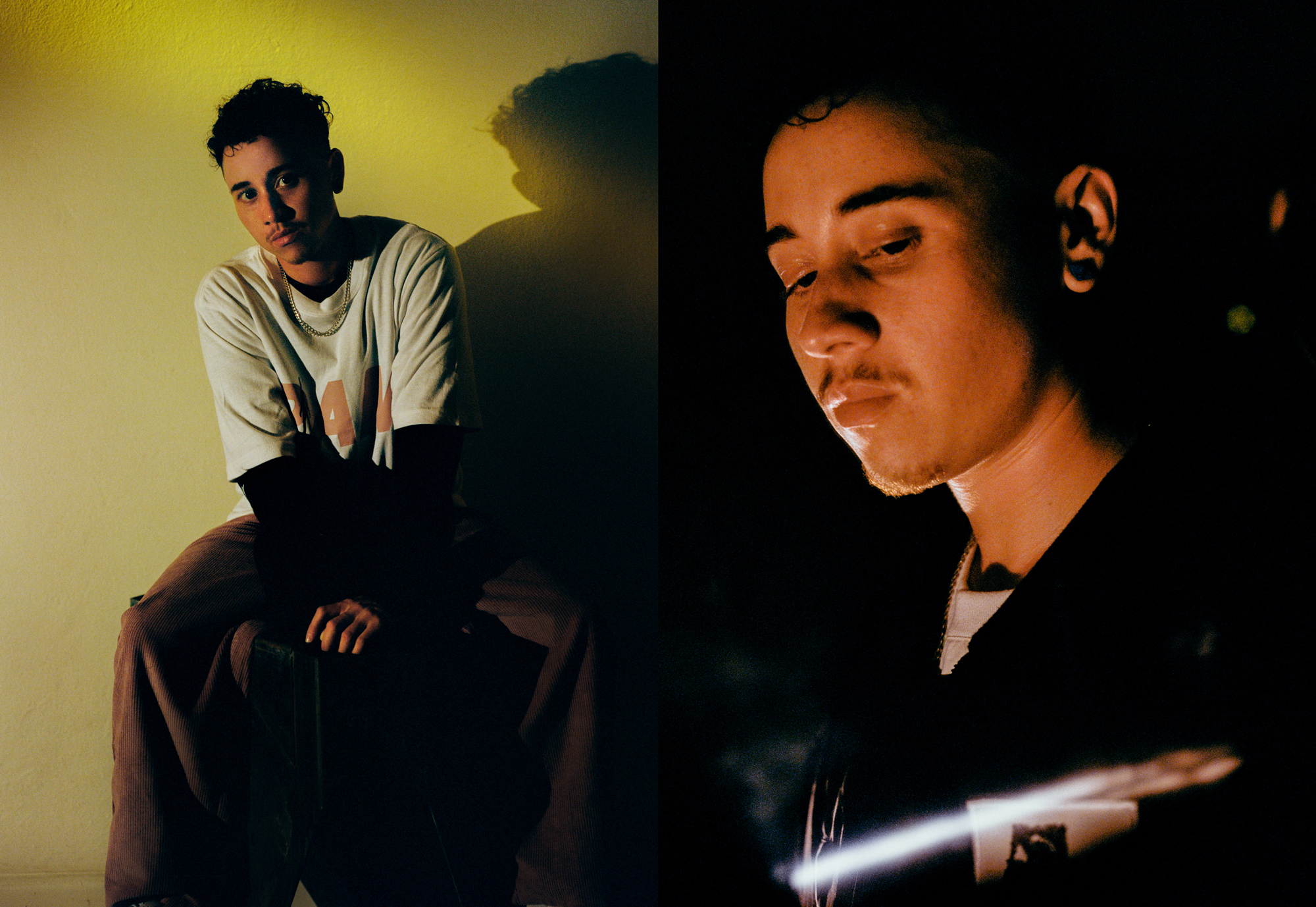There’s nothing more satisfying than watching a DJ play for deeper and more vital reasons than money or ego. In Sydney’s underground scene, Yung Brujo drops tracks for a sense of belonging, constructing a sonic identity that reflects their complex cultural background and the hyper-globalised world around them.
28 year-old Leo Borrero is half Colombian and half British. Growing up predominantly in white spaces in the UK and New Zealand, they were often the only mixed-race kid at school and often felt culturally alienated. It wasn’t until their early twenties, when Leo travelled to Colombia, that they were able to meet their family and really begin to explore their latin heritage. The formative trip was the first time Leo felt a real sense of cultural belonging, catalysing their desire to become a DJ upon returning to Sydney.
Yung Brujo describes their music as “heavily rooted in Latino and Queer influenced sounds, spanning the continent of America and beyond.” Oscillating between Tropical Bass, Vogue, Ballroom, Reggaeton, Grime and Baile Funk, Leo builds dancefloors that are emotional and political, spaces were the dancers can proudly drop their asses real low. i-D sat down with Leo to talk about how finding $1,000 on King Cross started their journey as a DJ, and how dancing is one of the best ways to connect with your ancestors.

Yung Brujo kicked off after your first trip to Colombia. What were you doing prior to that? How did the trip inspire you to throw yourself into DJing?
From the age of seventeen until pretty much early this year I’ve not had stable, long term housing. Being homeless or worrying about a roof takes up a lot of headspace, so I guess that zapped my creative energy in many ways. After working really hard — and with a little help from the universe in the form of ten $100 notes falling from the sky at my feet in Kings Cross — in 2014 I was able to travel overseas to a few countries, including Colombia. I met my eight year old brother and sister for the first time there, and my older brother in Mexico. I feel like by visiting my country, really being there, I got a little piece of myself back that I’d been missing. Since then, working on music has been like a life raft for me in times of death, grief, loneliness and cultural isolation. If you don’t have anything to connect to, how can you survive?
Having various cultural backgrounds myself, I know how isolating that can feel. Can you talk a bit more about the way in which DJing is therapeutic for you?
Music gives me a connection that nothing else does, culture-wise. It allows me to stitch together pieces of myself, like a memory quilt. In regards to gender, race and sexuality, being a bit of this and a bit of that can sometimes feel hard just to be a whole person; complete in your own right. In a way, DJing allows me to explore spaces I don’t easily have access to or that don’t exist. When I have my headphones on there’s no one to tell me I don’t belong, that I’m not enough of this or that.
It makes sense that if you were feeling fragmented, something like DJing would make you feel more connected through sound.
Yeah, for sure. I think that fragmentation ended up translating into a really deep sense of loneliness, which I felt from a very young age. On my dad’s side my abuelo is of Afro-Colombian descent and my abuela is of Indigenous-Colombian descent. My mum is English and brought me up with my grandma near Newcastle in the UK until the age of thirteen. At school, I was one of about five of the non-white kids. Come to think of it, I was the only one who was mixed race. On top of that, the only time I ever saw any concentration of Latinx was visiting my dad in Brixton. My identity is even more complex because I come from a culture that, in a lot of cases, chooses to distance itself from its own ancestry —a result of colonisation and the pedestalization of whiteness. It’s been hard to allow myself to explore all of these things in a way that felt authentic. It’s a work in progress.
So DJing is your way of accurately representing your identity in a country where there’s little Latinx culture?
Yeah, feeling represented is critical to your sense of wellbeing. It’s been important for me to bring that to queer spaces in Sydney, where maybe it wouldn’t happen otherwise. In the three years I’ve been playing though, I definitely hear latin rhythms a lot more these days. I guess cultures, traditions and music easily get lost, but DJing and dancing are some of the most direct lines you can use to connect to your ancestors. Not that they were blasting reggaeton or anything, but some of those beats and rhythms we hear today go back a long way. It awakens something inside you. Some part of you just remembers.
Do your view your work as a DJ as political?
I think for any queer, non-binary and/or person of colour just existing is political. There are always going to be spaces where the music that I play is not going to be welcomed. A lot of latin rhythms almost demand you move your body a certain way which that I think is quite confronting for the average Aussie bloke, not used to connecting with the lower half of their body in any kind of graceful way. It’s good exposure therapy for people, though, but there’s always going to be a toddler sitting in their high chair, rejecting to eat their veggies, flipping them into the air in defiance. Just try it, it’s good for you!
True, Aussie blokes are certainly afraid of having a sense of connection with their asses. Speaking of the positive side of the dance floor, tho; what makes you the happiest as a DJ?
I live for moments I get to see my queer, non-white siblings getting their life on the dancefloor. If I can make just one person feel like they have a place to belong to then I’m happy with that.

credits
Text Triana Hernandez
Photography Constantine Virtanen
Fashion Romy Safiyah
